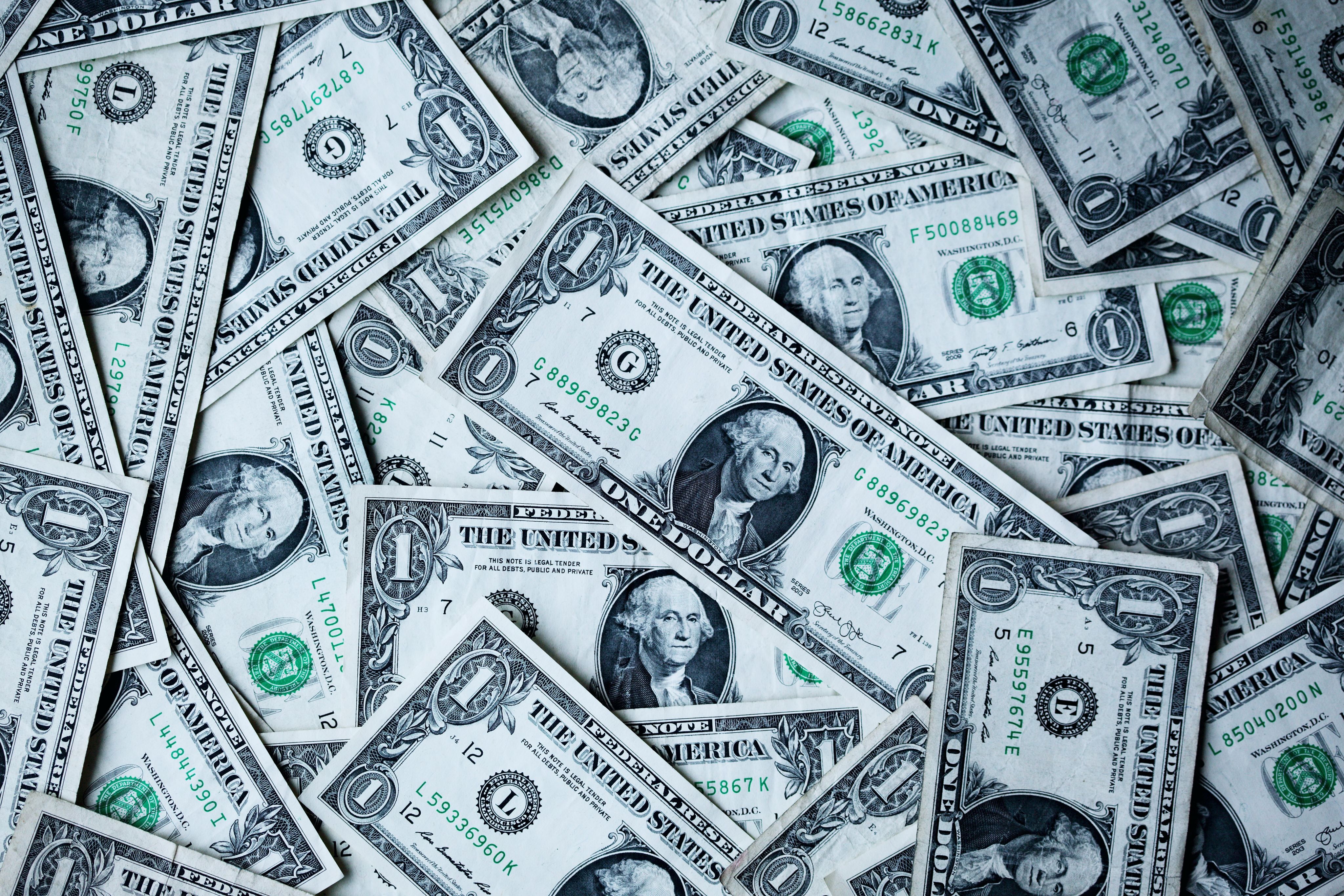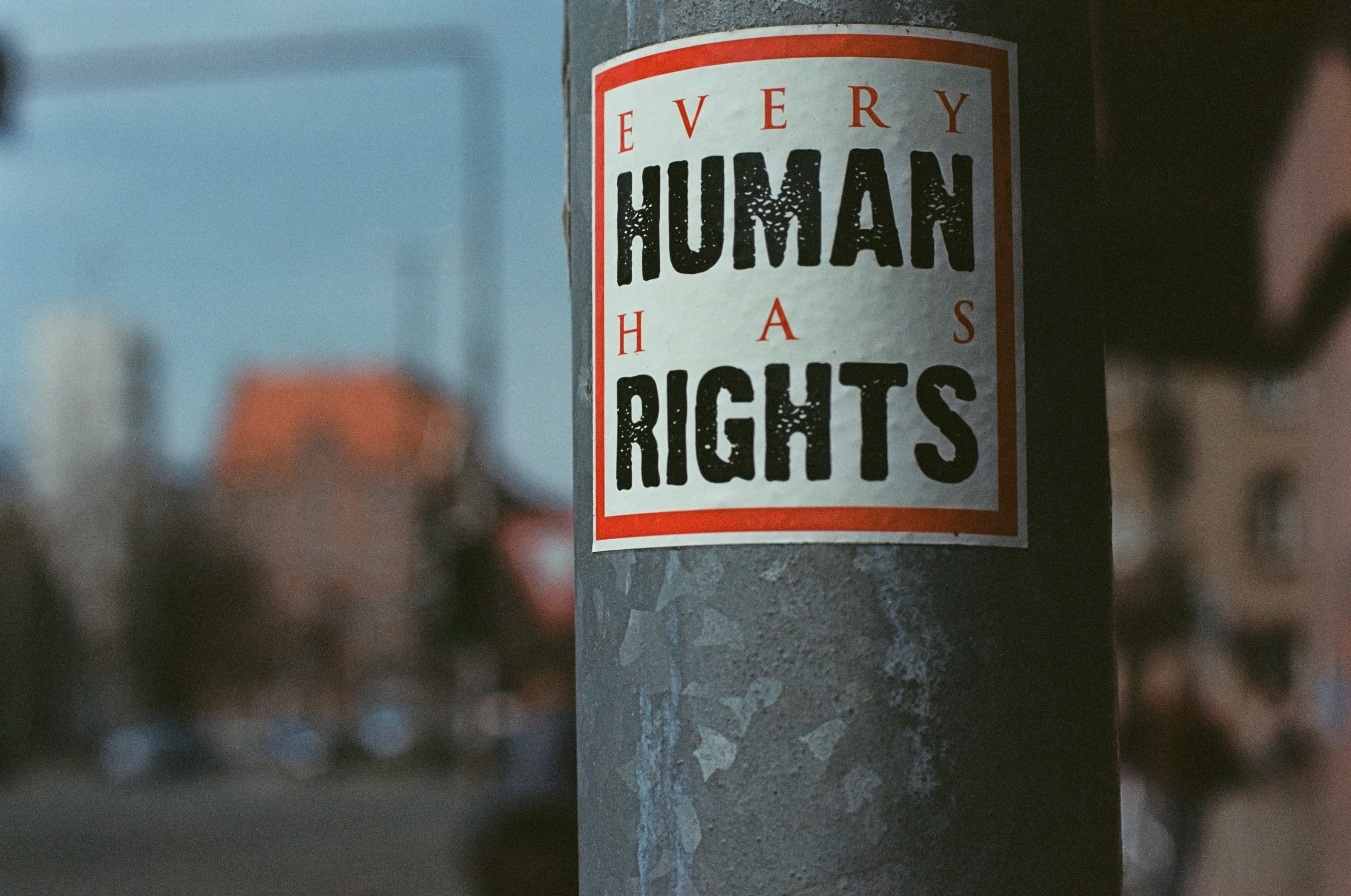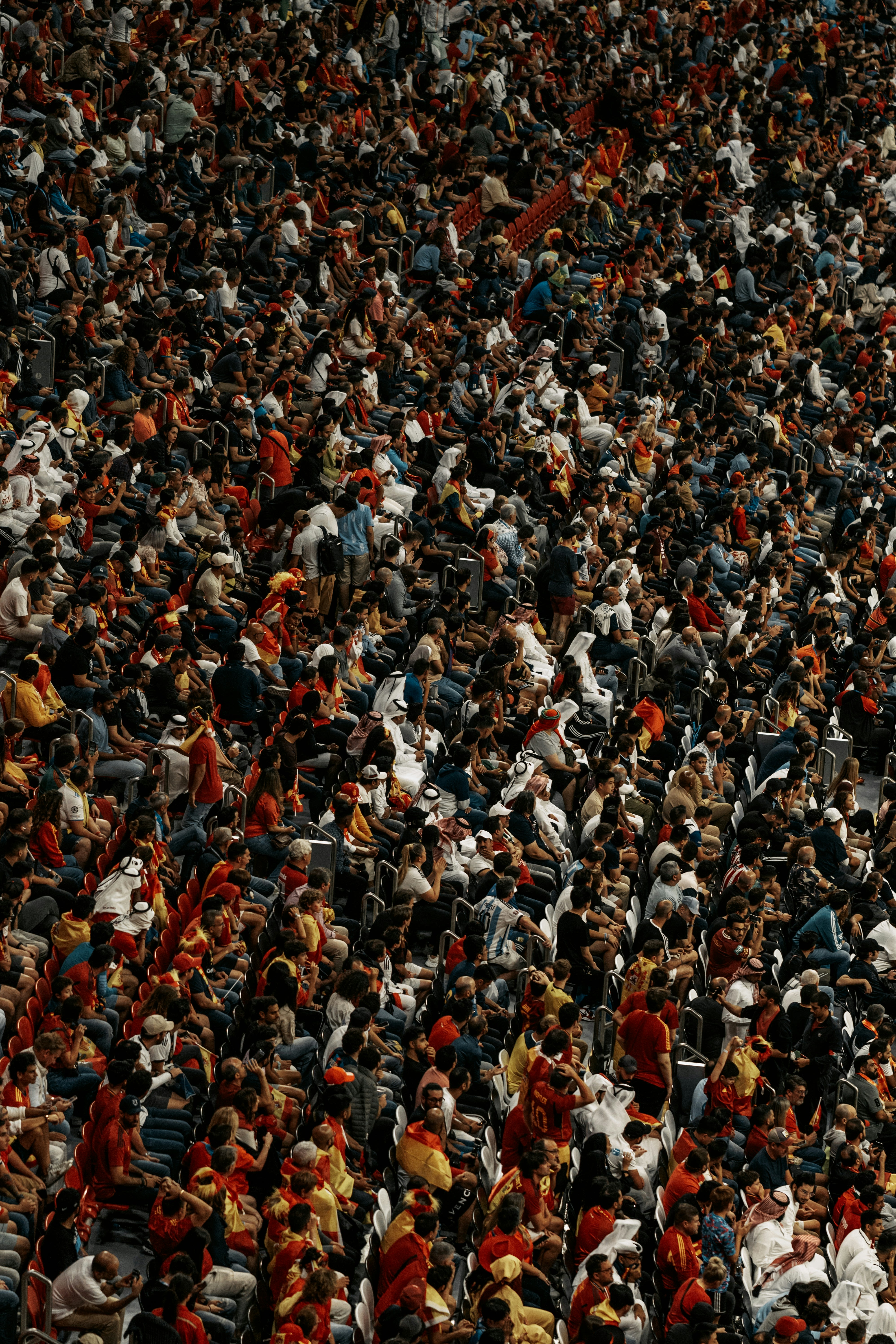Saudi World Cup 2034: Sportswashing like you've never seen it before
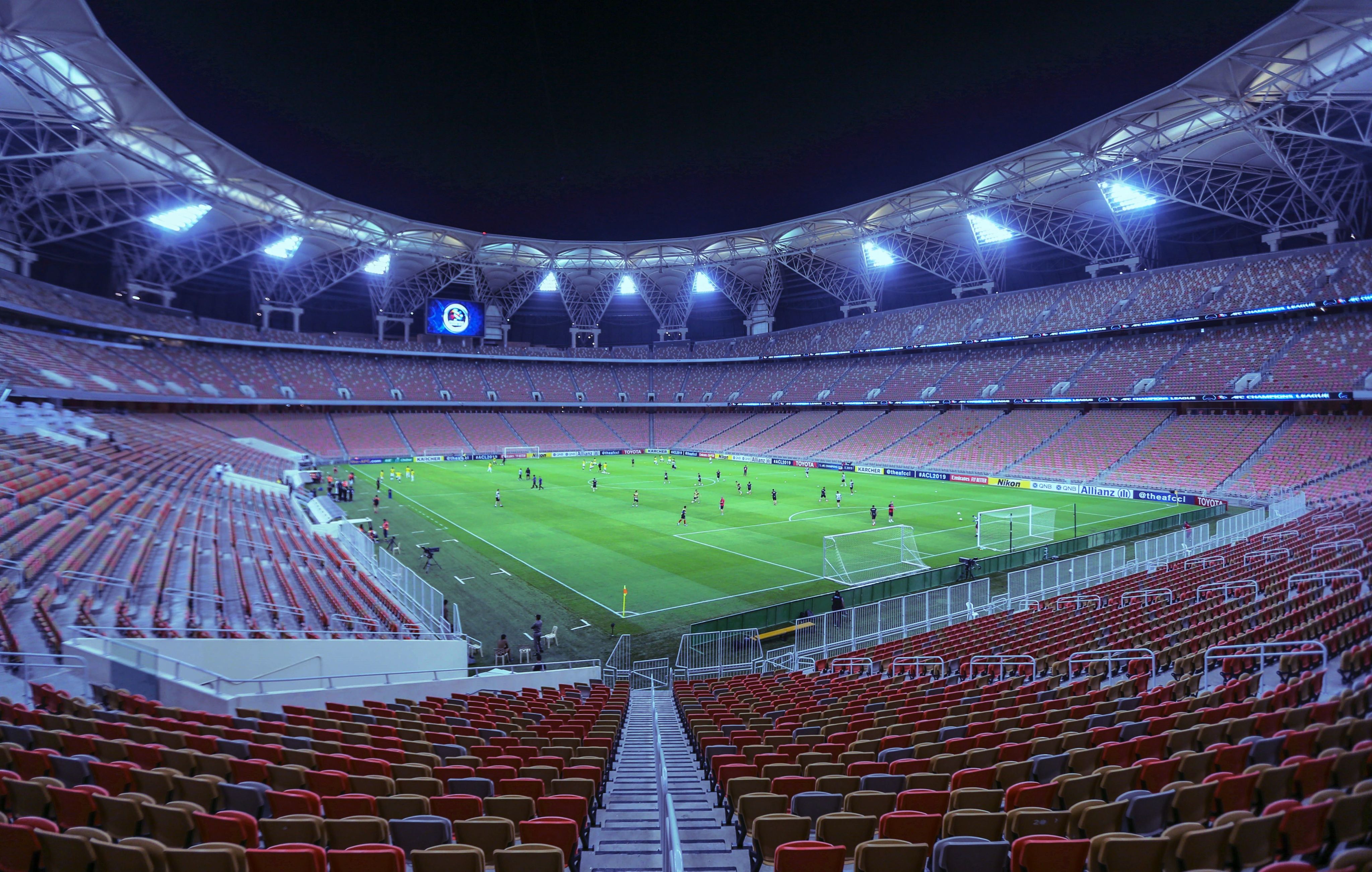
As the 2034 World Cup edges towards Saudi Arabia’s grasp, sportswashing is once again threatening to rear its ugly head – but this time, on a scale far larger than ever seen before.
Sport is notorious as an exceptionally powerful tool for nations seeking to alter their wider public perception, both within their borders and beyond.
Through sporting showcases, politically ambitious states are able to broadcast a tailored message to each corner of the globe, often in pursuit of laundering a reputation tarnished by human rights abuses.
With an overarching aim of consolidating their power, sportswashing can have a detrimental impact on human life.
It can provide radical states with the support base necessary to implement extremist policies and intensify military action down the line.
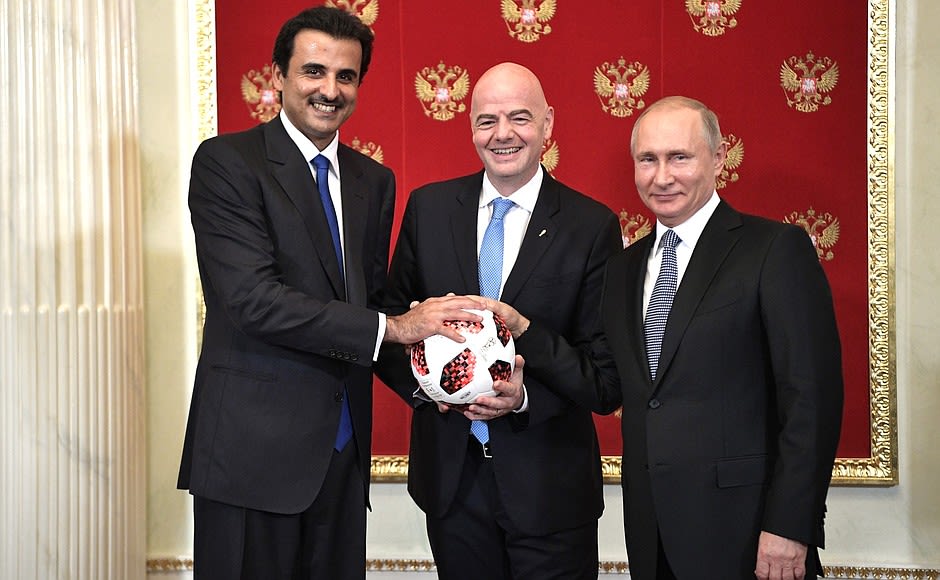
President of Russia Vladimir Putin hands over World Cup duties to emir of Qatar Sheikh Tamim ibn Hamad Al Thani. Image Credits: Russian Presidential Press and Information Office, licensed under the Creative Commons Attribution 4.0 International license.
President of Russia Vladimir Putin hands over World Cup duties to emir of Qatar Sheikh Tamim ibn Hamad Al Thani. Image Credits: Russian Presidential Press and Information Office, licensed under the Creative Commons Attribution 4.0 International license.
In the past few years, Saudi Arabia has led the charge with their sportswashing initiatives – from the formation of LIV Golf to their pillaging of European football’s top stars, such as Cristiano Ronaldo, Karim Benzema and Neymar Jr.
And now, they look set to host arguably the biggest spectacle of them all: the FIFA World Cup.
Many have been quick to condemn the Saudis for their strategies of deception and distraction, dubbing the regime as patient zero of sportswashing.
However, Saudi Arabia are far from the innovators of the practice. In fact, sportswashing’s roots go back much further than vast majority would perceive.
A brief history of sportswashing
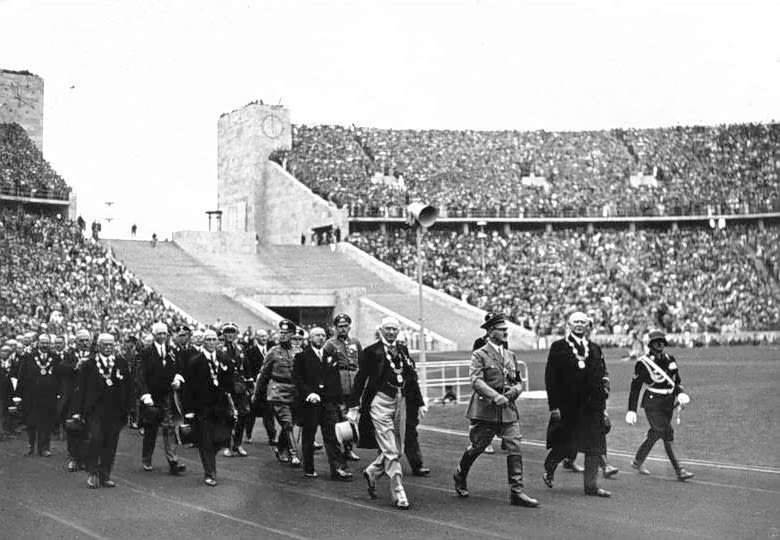
Sportswashing, as a term, was coined relatively recently. It first appeared during the 2015 European Games in Baku, Azerbaijan - with activists using the buzzword to illuminate dictator Ilham Aliyev’s deceptive efforts at laundering his poor humanitarian reputation.
That said, while the term is in its early stages of development, the same cannot be said for the practice itself.
Its roots actually date back as far as ancient times, with political scientist and former professional footballer Jules Boykoff citing a key instance of sportswashing during an early Olympic Games in Greece.
Jules Boykoff explains the ancient roots of sportswashing.
Jules Boykoff explains the ancient roots of sportswashing.
From a more modern perspective, sportswashing was revolutionised by Adolf Hitler and the Nazis at the 1936 Berlin Olympics.
The Nazis unlocked the seismic potential that athletic mega-events had in accessing the global mainstream media, utilising what was an incredible sporting spectacle to deflect attention away from their wrongdoings and drown out much international criticism.
Providing Hitler with a major boost in support both within and beyond his borders, the Games allowed him to heighten his military and discriminatory initiatives, which eventually brought about the Second World War.
So triumphant were the Nazi Games that to this day, any attempt at sportswashing by an autocratic regime inevitably draws comparisons to the events of 1936 in the media.
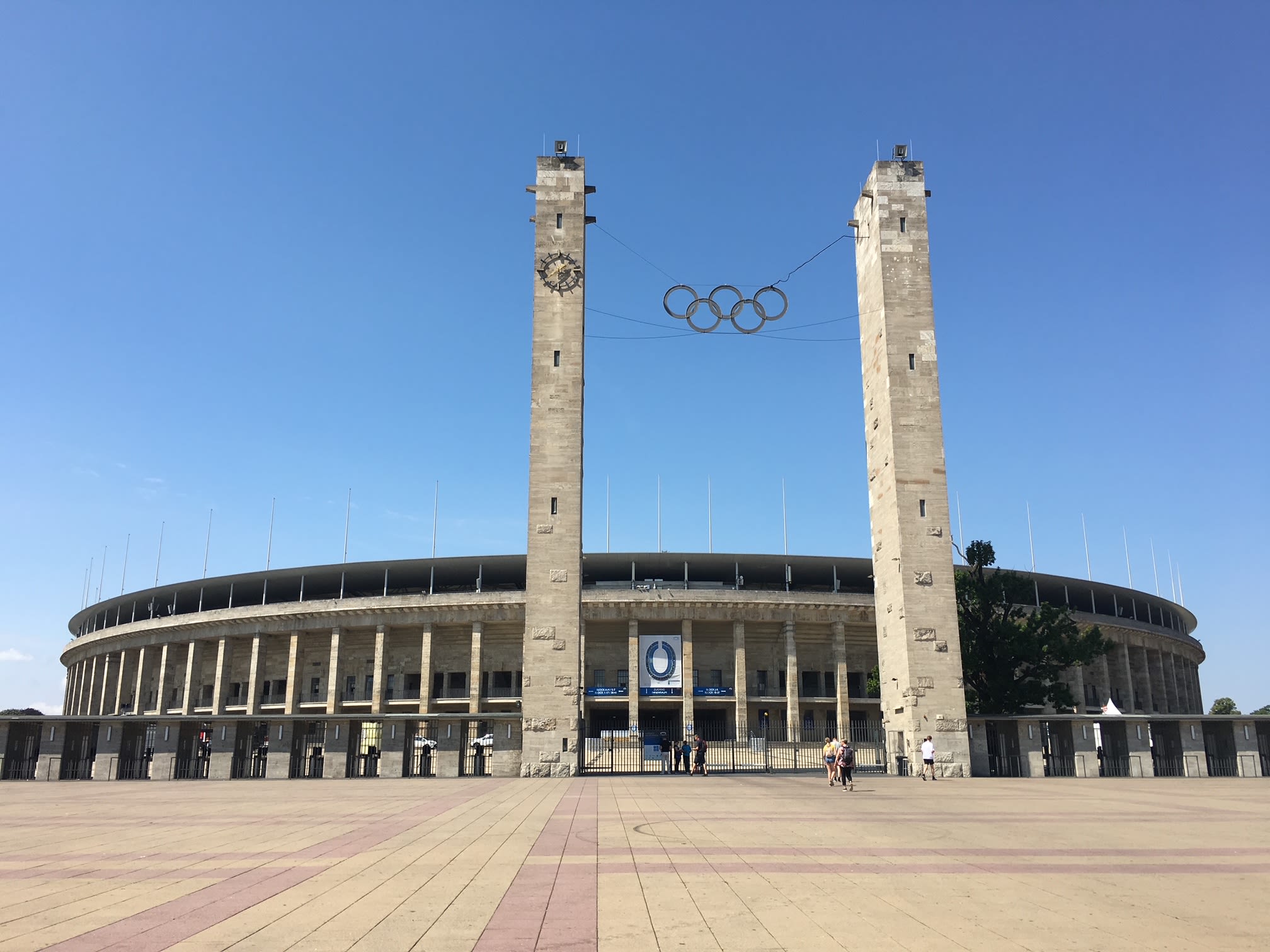
Olympiastadion, home of the 1936 Berlin Olympics. Image Credits: Will Castle.
Olympiastadion, home of the 1936 Berlin Olympics. Image Credits: Will Castle.
Just over four decades on from 1936, it was Argentina who would further innovate sportswashing.
The country’s brutal military dictatorship utilised a footballing frenzy at the 1978 World Cup to move focus away from their litany of atrocities, which included the disappearance of approximately 30,000 people at the hands of the junta.
Since the turn of the century, sportswashing has become ever-present in modern society, utilised by both autocratic and democratic states – and it hasn’t solely been concentrated in the Middle East.
One notable example occurred in 2014, where just months after the Sochi Winter Olympics brought sky-high approval ratings for Vladimir Putin, the Russian regime launched their invasion of Crimea.
As such, it would be remiss to label Saudi Arabia as the creators of sportswashing, with the legacy of the practice stretching far beyond what many would imagine.
That said, with the Saudis’ bid for the 2034 World Cup set to go uncontested, many are fearing that history is threatening to repeat itself.
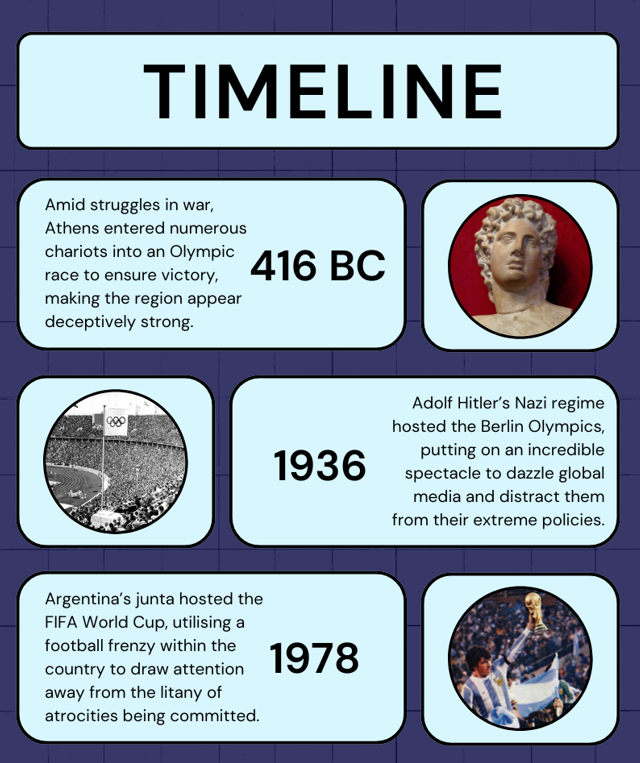
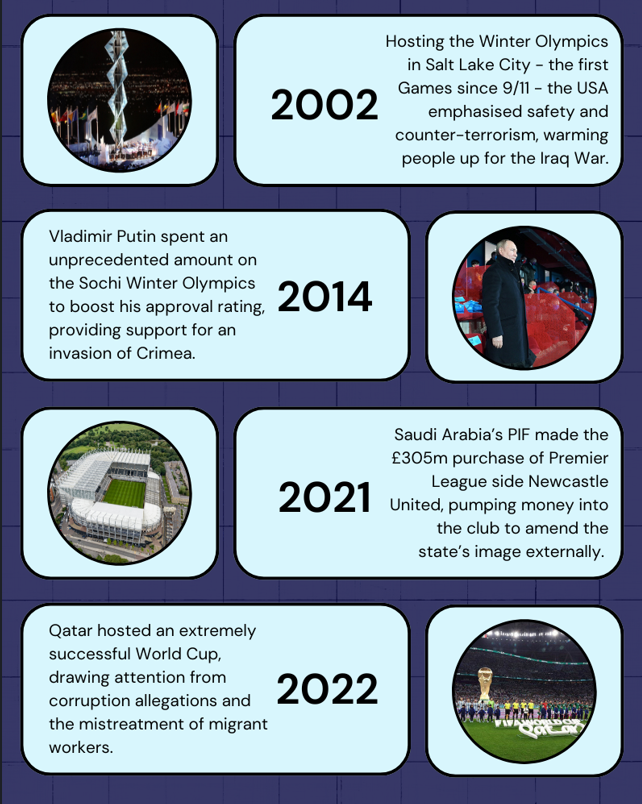
New heights set to be reached

For years, Saudi Arabia has had its fingers deep in the sportswashing pie. Whether it be through hosting showcase boxing events, buying major football clubs or forming the breakaway LIV Golf league, Saudi Arabia's Crown Prince Mohammed bin Salman has invested billions into sport with the goal of altering his regime’s perception in the minds of the masses.
However, as far as sportswashing initiatives go, the impact of Bin Salman’s previous exploits pale in comparison to what looks set to come, with Saudi Arabia set to be given the mighty privilege of hosting the FIFA World Cup in 2034.

Dustin Johnson hoists the championship trophy following his victory in the LIV Golf Invitational Boston tournament. Image Credits: JazzyJoeyD, licensed under the Creative Commons Attribution-Share Alike 4.0 International license.
Dustin Johnson hoists the championship trophy following his victory in the LIV Golf Invitational Boston tournament. Image Credits: JazzyJoeyD, licensed under the Creative Commons Attribution-Share Alike 4.0 International license.
The World Cup is the biggest, most viewed sporting event on Earth, with the most recent rendition of the tournament – hosted by Saudi Arabia’s Gulf state neighbour Qatar – being engaged with by approximately five billion people, according to FIFA.
With global outreach at the centre of what makes sporting events such an effective outlet for altering public opinion, the World Cup acts as a sportswasher’s dream – providing the perfect platform to project a tailored message to each corner of the planet.
Of course, the Saudis won’t be the first to use a World Cup for sportswashing purposes – and comparisons will instantly be drawn to the aforementioned Qatar World Cup of 2022.
That tournament was surrounded by controversy during its build-up, initially regarding the substantiated accusations of bribery and corruption in the way the country secured the event from FIFA.
Criticism then skyrocketed when the country’s treatment of migrant workers came to light, with thousands dying as a result of forced labour during the construction of stadiums.
Yet despite the intense international media scrutiny prior to the event, the tournament that followed was a remarkable success, managing to draw attention away from the human rights troubles on the Qatari front.
Memories of Qatar’s World Cup now centre around the crowning moment for Argentina icon Lionel Messi rather than the political omnishambles that surrounded the tournament – a prime example of successful sportswashing.
Saudi Arabia will look to replicate the wonders worked by Qatar, but on a far grander scale.
Bin Salman’s regime has lofty ambitions of becoming a global superpower, and while they continue to thrive on the economic side of things, their social development has a lot to be desired – at least from a Western standpoint.
Saudi Arabia remain one of the most polarising nations on the planet due to their appalling human rights record. Freedom of expression is a key issue in the nation, with homosexuality heavily criminalised.
And while Bin Salman’s sportswashing initiatives may paint Saudi Arabia as a country in modernisation, that’s far from the reality. In fact, they’re going backwards.
Since the Crown Prince assumed power in 2015, Saudi Arabia has executed at least 1,257 people, at an average of around 140 per year. The rate of executions has almost doubled under his leadership.
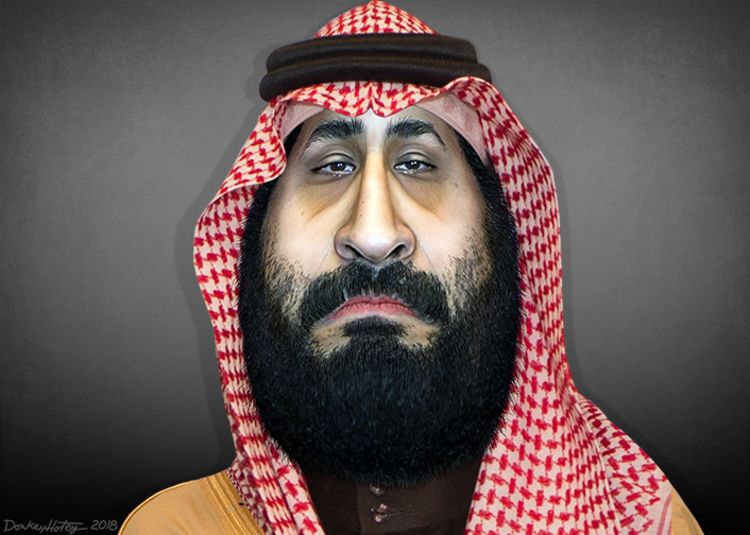
Caricature of Mohammed bin Salman, Crown Prince of Saudi Arabia. Image Credits: DonkeyHotey, licensed under the Creative Commons Attribution 2.0 Generic license.
Caricature of Mohammed bin Salman, Crown Prince of Saudi Arabia. Image Credits: DonkeyHotey, licensed under the Creative Commons Attribution 2.0 Generic license.
However, as the state continues to be handed the privilege of hosting major sporting showcases, people are naturally being deceived into believing the opposite.
Saudi Arabia will no doubt put an unprecedented amount of capital into the 2034 World Cup, putting on a breathtaking spectacle similar to that of the Nazis from close to a century prior.
It’s not a bold prediction to expect the world to be captivated, with sport so resonant with people globally.
But it won’t simply be Saudi Arabia’s reputation that soars to new heights as a result of the successful sportswashing campaign. History has proven that human suffering will also be on the rise.
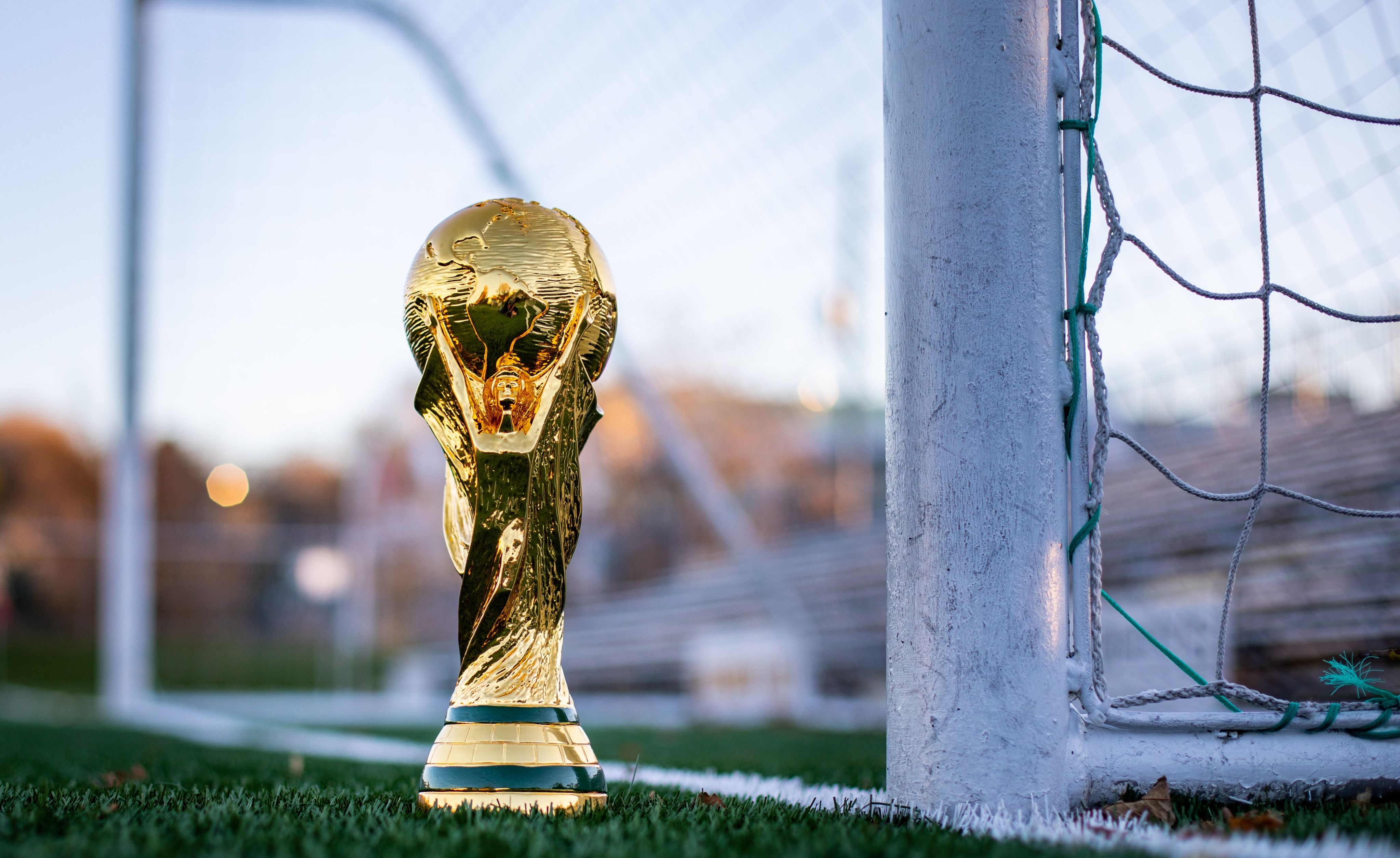
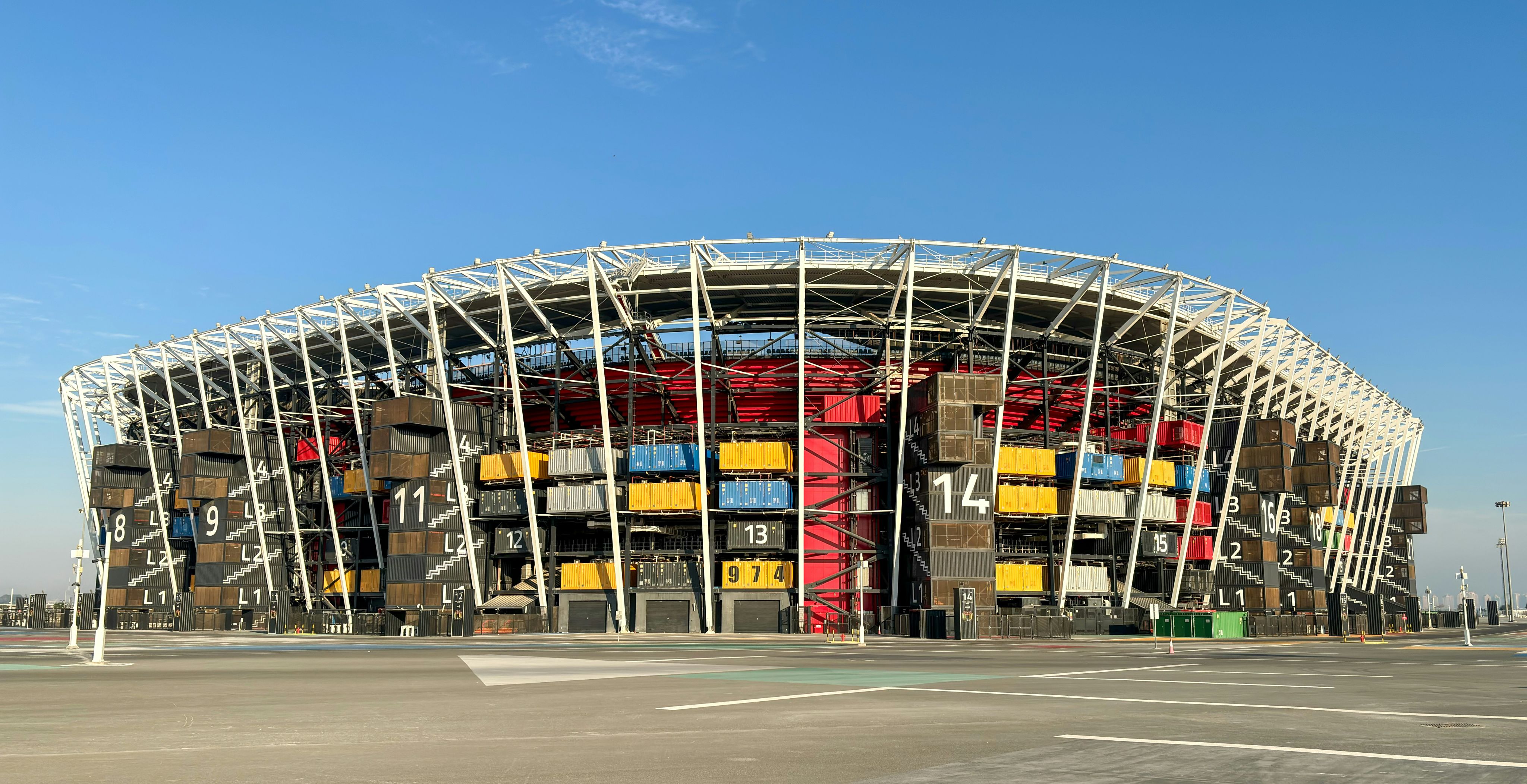
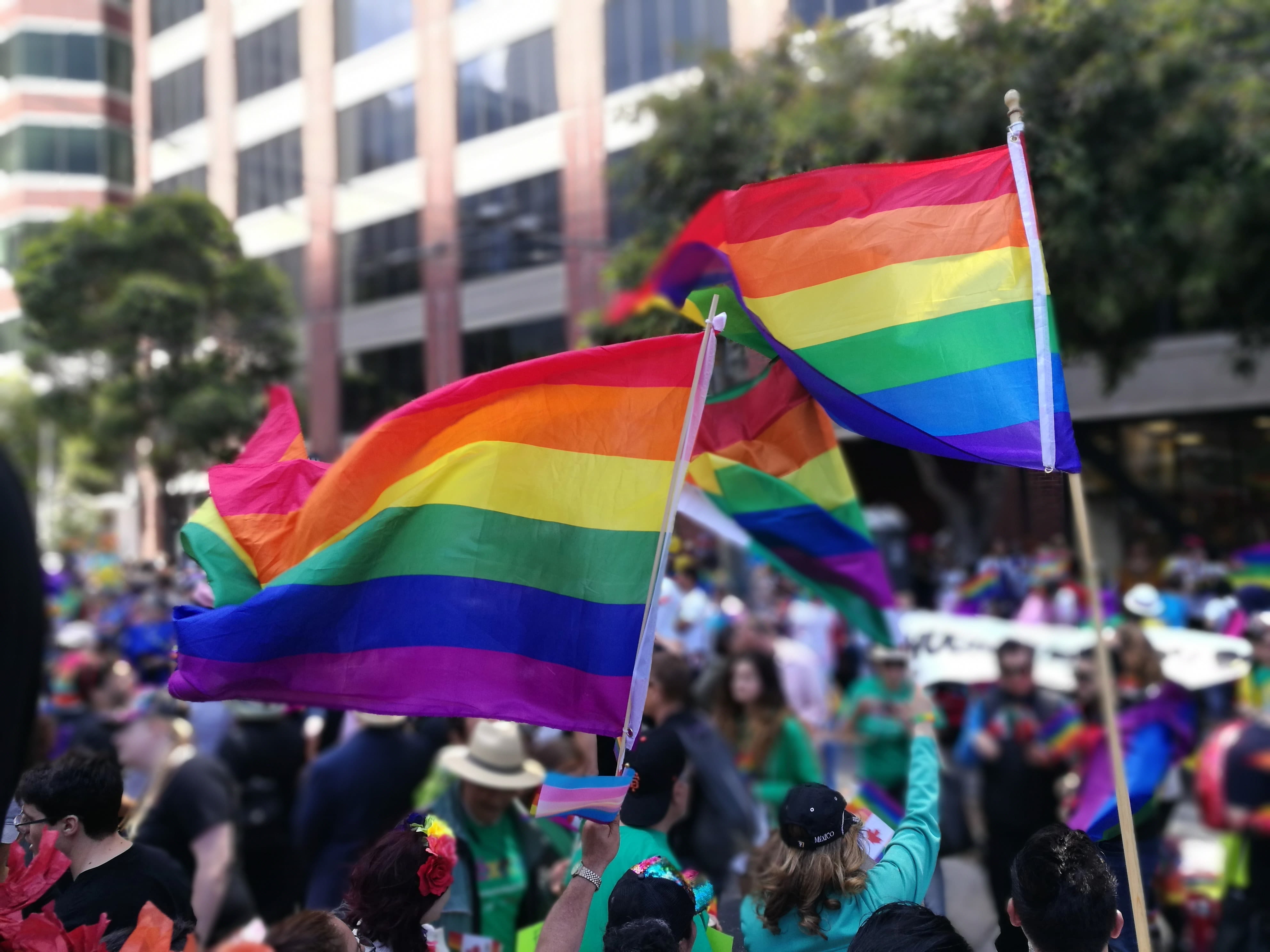
What needs to change?
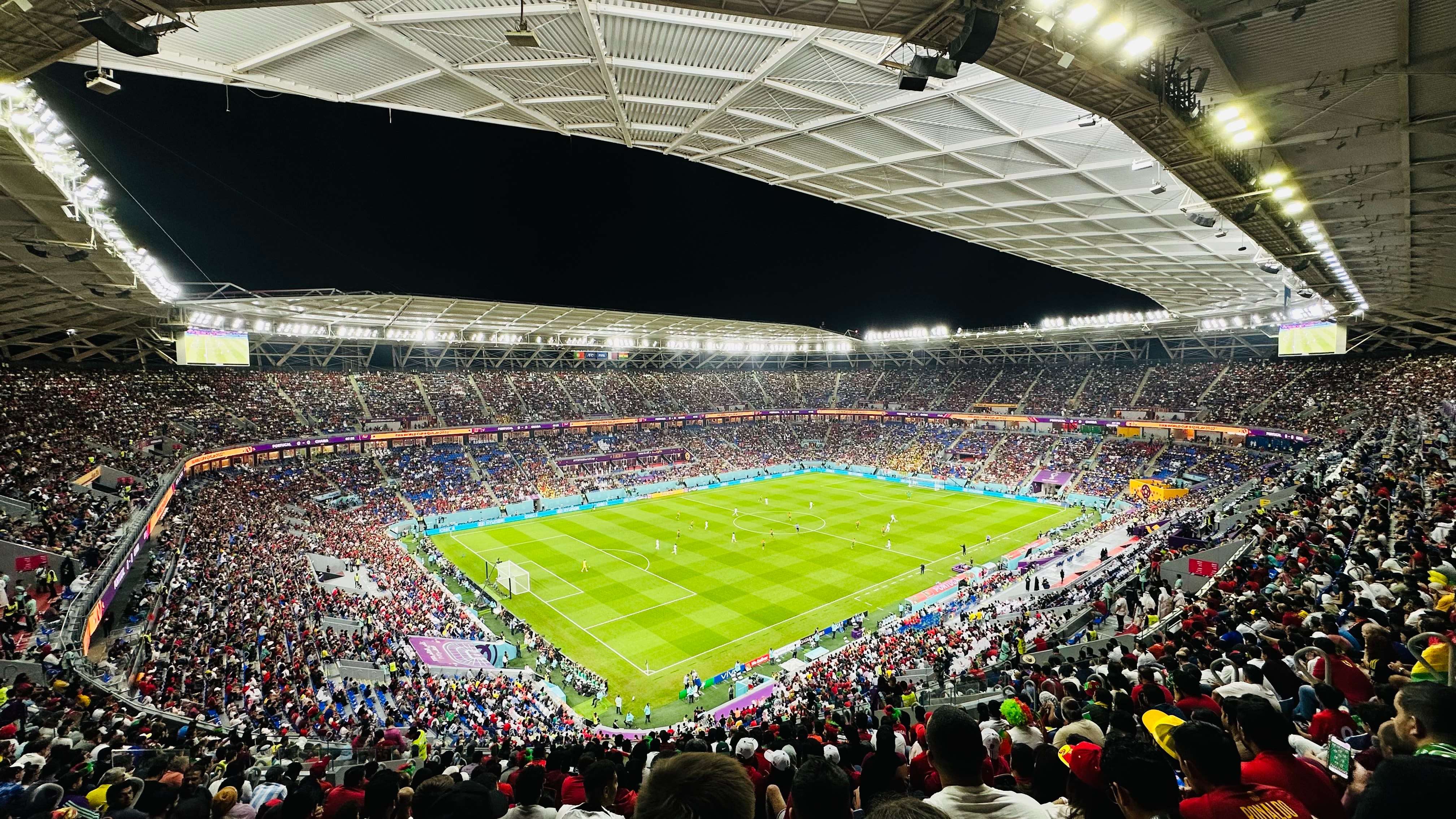
Despite their shoddy human rights record, securing hosting privileges for major events has simply been made too easy for the likes of Saudi Arabia.
There are no concrete pledges that are agreed upon by the nation and the relevant governing body, promising to improve in key humanitarian metrics in a certain timeframe. Instead, money talks.
A Saudi-hosted World Cup would provide a seismic cash injection for FIFA, who will likely attribute simply holding the event as a catalyst for future social development within the Kingdom.
However, Boykoff is eager to highlight the weaknesses in any argument of this sort.
Jules Boykoff explains why awarding Saudi Arabia the World Cup will only stunt the country's social development.
Jules Boykoff explains why awarding Saudi Arabia the World Cup will only stunt the country's social development.
It only requires logical thinking to realise that without any incentive to change, Saudi Arabia aren’t going to stray from their way of operating.
By simply handing major sporting events to Bin Salman, key organisations like FIFA is only enabling the state to continue or even intensify their policies of oppression.
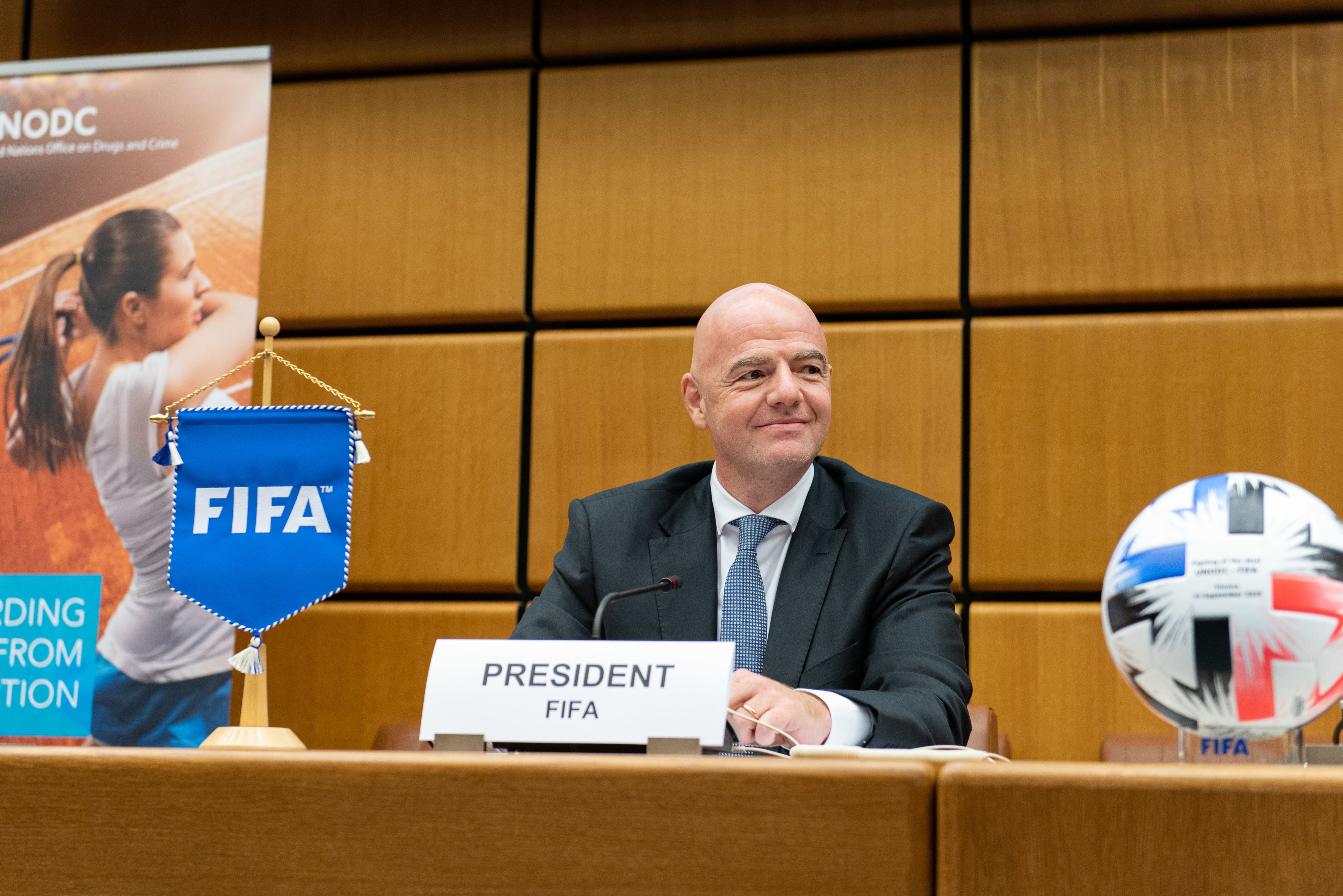
Gianni Infantino, President of FIFA. Image Credits: United Nations Office on Drugs and Crime, licensed under the Creative Commons Attribution 2.0 Generic license.
Gianni Infantino, President of FIFA. Image Credits: United Nations Office on Drugs and Crime, licensed under the Creative Commons Attribution 2.0 Generic license.
With a need for a new approach, Amnesty International has voiced its concerns on a potential Saudi World Cup – calling on FIFA to harden their attitudes towards human rights breaches in the selection process for the tournament’s host.
“FIFA must now make clear how it expects hosts to comply with its human rights policies,” said Steve Cockburn, Amnesty International’s head of economic and social justice.
“It must also be prepared to halt the bidding process if serious human rights risks are not credibly addressed.
“The best chance for FIFA to obtain binding guarantees to protect workers’ rights, ensure freedom of expression and prevent discrimination linked to the World Cup is during the host selection process – not after the hosts have been confirmed and tournament preparation has begun.
“Human rights commitments must be agreed with potential hosts before final decisions on holding the tournaments are made.”
The upcoming 2034 FIFA World Cup being hosted by the Saudi Arabian regime is drawing attention to human rights issues, particularly after the regime recently arrested a group of fans for peacefully singing a Shia religious song. pic.twitter.com/UoBxCy81IL
— Human Rights Foundation (@HRF) May 7, 2024
Whether FIFA acts on Amnesty’s plea is anyone’s guess, but one thing they aren’t lacking in is public support for this cause.
In June 2023, an opinion poll of more than 17,000 adults in 15 countries showed that the majority of fans wanted human rights standards to be a key consideration when selecting the host of a major sports event.
However, there’s only so much public activism can do for this particular issue.
It will ultimately be up to the key players of the athletic world to decide whether to take a resolute stand against sportswashing – something that would be sure to risk an incredibly profitable relationship with the likes of Saudi Arabia and Qatar.
